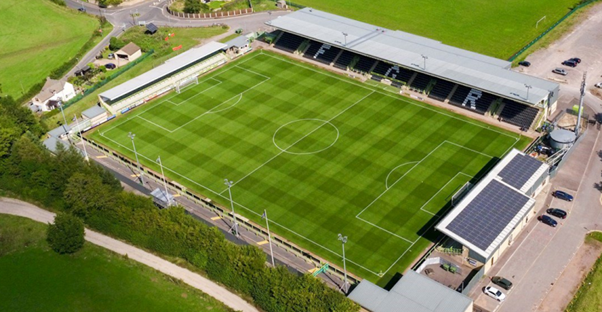A truly sustainable football club.
Heralded by FIFA as ‘the greenest football club in the world’, the Forest Green Rovers are top of the table when it comes to their innovation and commitment to sustainability. An organic playing surface, a bamboo match kit, a solar powered stadium and an environmentally sustainable menu are just a few of the green initiatives implemented at the club.
Beginning their green journey in 2010, the League Two Team are heard well above their ranking when it comes to sustainability. Having influenced many top tier football clubs in the way they approach their environmental matters, the Forest Green Rovers, as stated by Arsenal’s Hector Bellerin “are a clear example of how to run a football club in our times.” Bellerin, a passionate environmentalist, has recently invested in the club with an aim of supporting their green agenda.
Leading this shift towards sustainability in sport is Dale Vince, founder of Ecotricity and Chairman of the Gloucestershire based football club. Having started Ecotricity in 1995, they became the world’s first green energy supplier and are now headline sponsor and energy provider for the club. Making a habit for ‘world firsts’, Vince also guided the club to be the first sports organisation to gain UN-certification of being climate neutral. With only fifteen organisations in the world gaining this accolade, it really cements what an achievement this has been.
However, as plays true on the football pitch, you are only as good as your team. Vince is supported by a devoted group who are very effective at using the platform of sport to champion sustainability. We are lucky enough to speak with one of the key members of said team, Paula Brown, Partnerships and Event Manager. For fifteen years Paula has played an active role at the football club, witnessing a great deal of change and has kindly agreed to discuss the ins and outs of FGR’s green initiatives.
Let’s kick off!
Why should we make our events more sustainable?
We should all be looking to make a difference no matter what industry we work in. Climate change is a global issue not just an industry wide one. At Forest Green Rovers we are lucky enough to use sporting events as a platform that effectively communicates how important world change is. Looking at the basics, we can all take necessary steps to reduce our resource consumption, with an aim of limiting our physical impact on the environment not just in the form of raw materials but also the amount of waste we produce.
What was the stimulus in wanting to drive the club towards a green future?
It all came about when Dale Vince, our Chairman, became involved with the club back in 2010. Vince set up Ecotricity, the world’s first green energy company focusing on four pillars of interest – Energy, Transport, Food and Nature. The first three are responsible for over 80% of UK carbon emissions, so if you make an impact on those, you can look at solving bigger problems around climate change. FGR is where all of those elements have come to fruition, it’s a showcase of how you can operate sustainably in an area that’s not commonly associated with those types of activities.
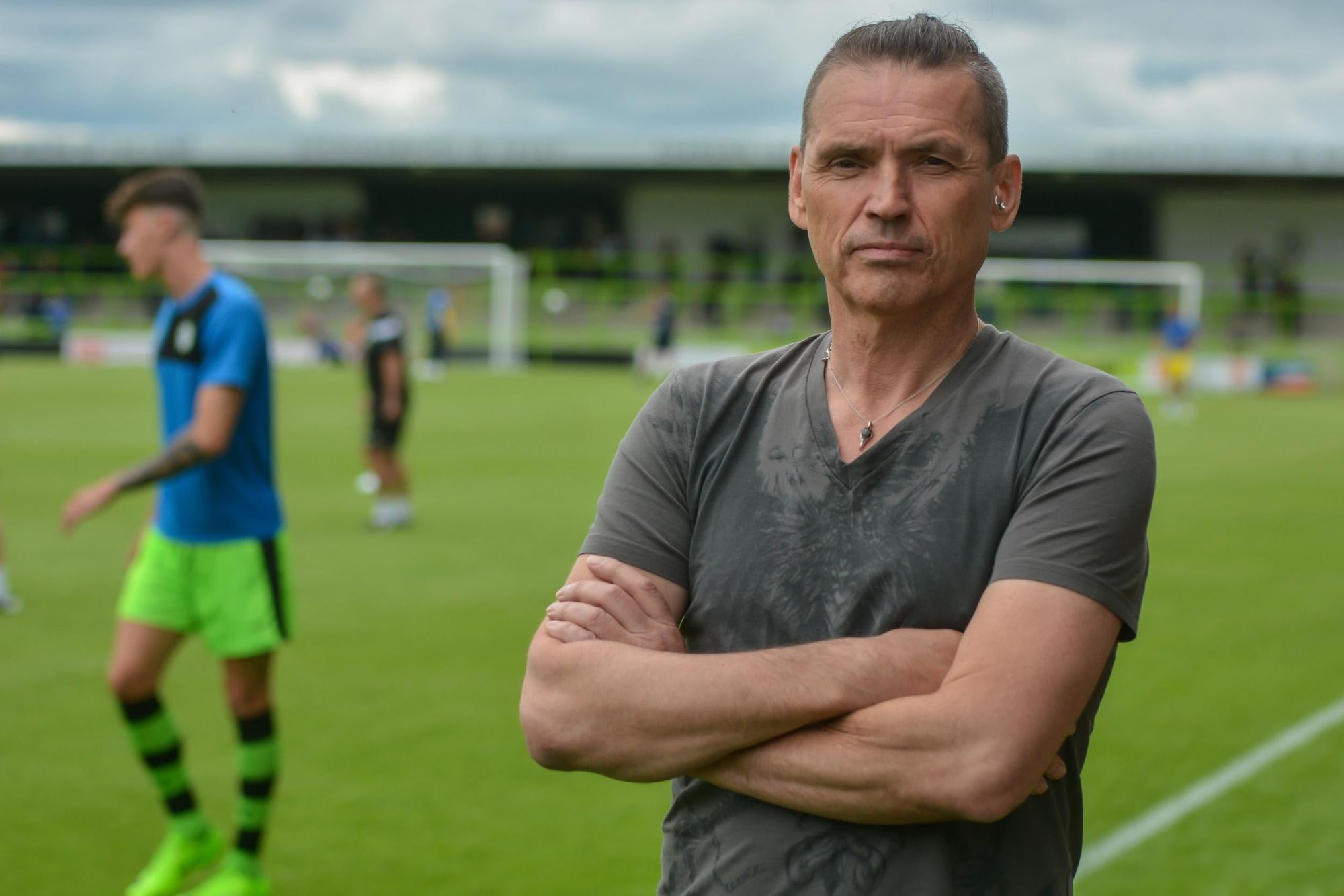
How do you look to promote, share and educate your sustainability practices to your match attending customers?
Our sustainable initiatives don’t go unnoticed when visiting FGR. From the moment fans arrive they see solar panels adjacent to a bank of wildflowers which support pollinators and a row of charging points for electric vehicles. The site is peppered with info boards providing facts about all areas of sustainability from how we manage an organic pitch, the carbon footprint of oat milk compared to using dairy and our support for local producers through our procurement decisions. We ensure recyclable paper bags are used, sell eco-friendly merchandise in our club shop and promote our handwash made using grass cuttings from the pitch.
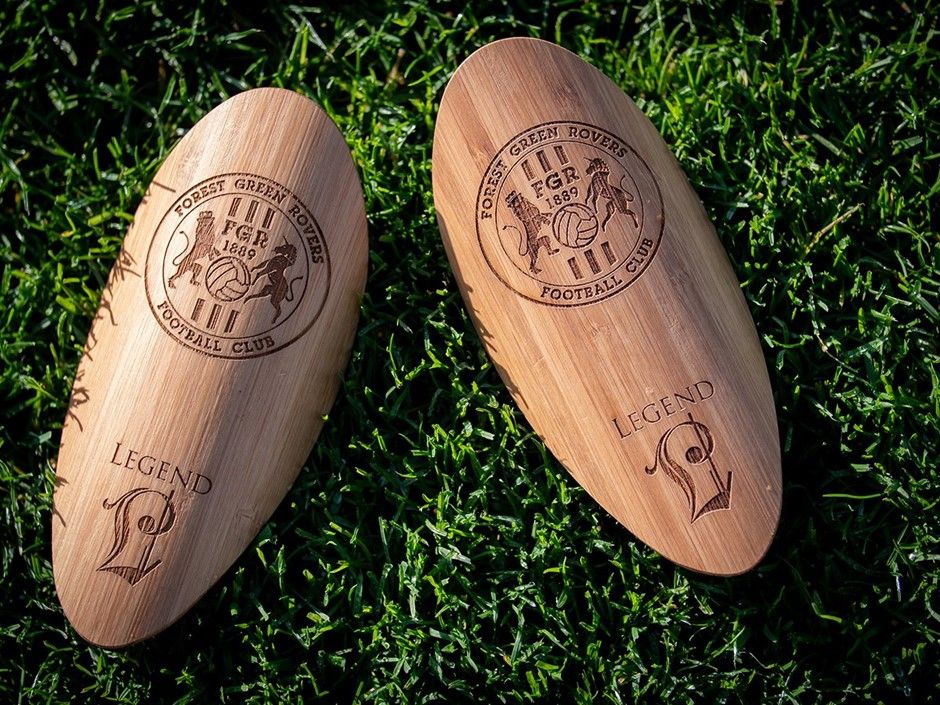
What further initiatives have been implemented to make FGR more sustainable?
From a stadium management side there are things such as creating the world’s first organic football pitch. This has attracted a lot of interest from other venues and sports such as lawn tennis and golf clubs. We use a rainwater collection system which is recycled for pitch irrigation. In addition to this we have substituted diesel powered grounds machinery for an electric mowbot that cuts the grass using GPS positioning.
We are probably most famous for switching to a vegan menu (we were the first vegan football club recognised by the Vegan Society), it gave us an opportunity to raise awareness of the impact of animal farming on the environment and has continued to provide constant interest from media over the years. Rarely does a game go by when we haven’t got a film crew or journalist from some part of the world covering the FGR story! The FGR burger was so popular that it has spun off into its own company, Devil’s Kitchen, providing vegan food for the mass catering market as well as domestic customers.
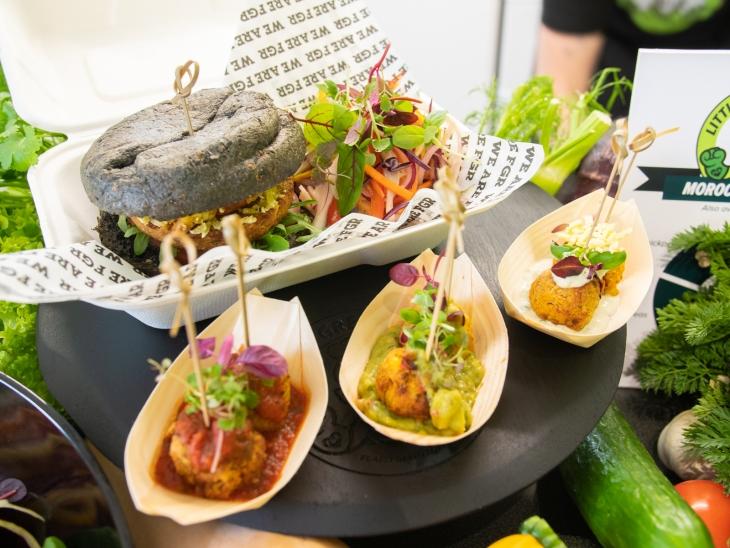
We also work closely with various partners to highlight their fantastic causes, such as Sea Shepherd, the marine conservation organisation. In addition to this we have an active community trust which works with local schools, youth groups and other visitors to help raise awareness of the key issues we face as a planet.
What are some of the limiting factors and barriers that create difficulties in going green?
Having faith in what you are doing is hugely important. It would be so easy to back track on decisions like removing red meat from the menu. We initially received some vocal opposition from fans, but in the long-term sticking to our guns has been of great value, proving popular on the menu and also attracting sponsors such as Oatly and Quorn. Other areas that need attention are ensuring that you have buy-in across all areas of the business, this can require different approaches in messaging to get folk on side – collaboration is key!
One of the biggest changes that any venue can make is switching to a 100% green energy supplier. Financially this can seem daunting, however if a sustainable approach is implemented correctly, savings can be made in a variety of different areas.
What do you think is the biggest contributor in making the event industry unsustainable and why?
From conversations we have had with other venues the common factor is most definitely transport - how we get fans to and from games in particular. It is something that we are looking at in great detail for our new stadium which has just been granted planning permission and will be the world’s first all wooden football stadium.
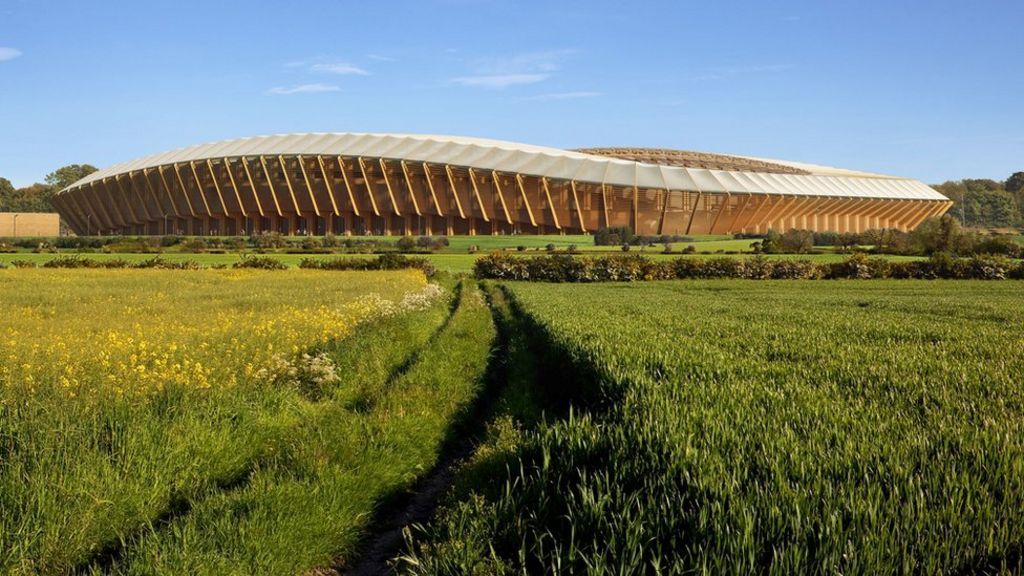
Are there any key measurements in which you can quantify how sustainable your venue is? If so, how?
We measure our carbon footprint and normalise this against the number of fans that we have attending home games each season. For the 2011/12 season the footprint per fan was 3.33kg of CO2, we have now brought this figure down considerably to 0.89kg in 2019/20.
Covid-19 has clearly caused great damage to the event/hospitality industry – however, do you think this pause in activity will allow event organisers to re-assess their approach and move towards a more sustainable event future?
I think that it’s been a stimulus for innovation, how long this lasts and what the future impacts of it are still to be seen.
How do you think Covid-19 will affect the implementation of your sustainable initiatives? i.e requirement for single-use items to prevent the spread of germs/virus etc.
Before Covid-19 took effect, we were already using compostable containers in our takeaway areas – we are confident that the use of these will remain Covid friendly when crowds return. There are a variety of environmentally friendly food serving options that can be Covid safe and disposed of responsibly.
How might we look to push sustainability to the forefront of major sports club’s agendas rather than it being an afterthought or a tick box?
It’s something that is gradually being recognised as important, it’d be good to push things forwards at a faster rate but we’re definitely seeing more interest from many different areas. Sports clubs and other venues are coming to us to talk about our experiences and how we’ve implemented things.
What can the customer do to help improve the sustainability of events they attend?
They can consider their impacts, how they travel to a venue, what they do whilst they are there e.g minimising and segregating waste. We hope that the information around the stadium and the green initiatives on display can offer guidance and tips on how to lead a greener lifestyle.
What new innovations are emerging that can assist in improving the sustainability of your event?
We’re in the process of planning a new stadium for FGR. We’ve shown what can be done if you retrofit principles of sustainability into a current venue, however we now have the chance to start with a clean slate – it’s a very exciting opportunity.
Do you choose suppliers that carry out responsible practices in their operations?
We audit our key suppliers as part of our ISO14001:2015 certification and have a set of guidance notes that help us in the decision-making process when we are reviewing new products or looking at potential sponsors to ensure that everything fits with the ethos of FGR.
From the point of view of both the client and supplier, do you think food sustainability in today’s industry carries the importance it should vs the likes of cost, aesthetics and speed of service?
Agriculture is responsible for around 20% of global carbon emissions and as such the decisions that we make around what we serve up on our plate has an important role to play in combatting climate change. We are seeing a significant increase in other clubs and venues looking to offer vegan and vegetarian options. With this increased demand we set up a new business manufacturing burgers and vegan products for mass catering venues such as stadia, schools and large businesses.
Where do you source your food? Are you able to utilise local suppliers?
We try to limit the number of different suppliers and partners we use in an aim of reducing freight transport emissions. We also use as much local produce as possible and have seasonal menus to suit the local offerings.
How have you changed food service styles to reduce the amount waste at the end of an event?
Like most sporting venues we can gauge for the hospitality areas, and any leftover food from the kiosks is used for staff and players food. Many of the players really support the vegan food on offer and feel it improves their athletic performance.
What initiatives do you have in place to reduce the carbon footprint of fans attending your matches?
We are a small local club and so many of our supporters walk to the games. However, there are always going to be others from further afield and so to minimise local congestion we operate a park and ride scheme as well as the ground being on the local bus route. Where possible we encourage fans to car share so that we can maximise the number of fans attending games whilst minimising the traffic impacts on the local area and residents.
Do you offset the travel of fans?
We currently offset player and fan travel to away games, we are looking at how we can quantify the footprint of travel to home games as part of our ongoing carbon foot printing work.
Large venues and gatherings produce thousands of tonnes of rubbish and waste each year – how do you look to reduce this amount at your venue / dispose of it sustainably?
Where possible we utilise reusable crockery rather than disposables, ensuring that recycling facilities are easily accessible and properly signposted also means that we can maximise our recycling rates. Procurement plays a role in this, ensuring that we think about how wrappers or containers will be disposed of at the ground is all part of the initial decision-making process when we are looking at a new product.
Can you tell us more about the renewable energy you use in the running of your stadium and services?
Around 18% of our electricity needs are provided by solar panels on site. The rest of our electricity is 100% renewable and is supplied by Ecotricity. Likewise, our gas is carbon neutral, the residual emissions from its use being covered by UN carbon credits.
How do you reduce energy consumption at your stadium?
Half hourly data and smart metering have made monitoring our energy consumption so much easier. We have a web portal provided by Ecotricity which allows us to view this data and has provided us with a tool to optimising our building heating and lighting around occupancy, ensuring that timers are used effectively, and areas are zoned depending upon heat requirements.
The Forest Green Rovers are a fantastic model of how a bottom-up approach to sustainability can be hugely effective. Leading by example in their industry, they have implemented some simple strategies that have been hugely effective in the running of a football club and a green business. It is not often that top tier sports clubs or Premier League football teams approach a League Two team for advice. Their innovation and commitment to sustainability has created waves that many organisations are taking inspiration from.
Thank you, Paula, for your fantastic insight into The Forest Green Rovers – a truly sustainable football club.

